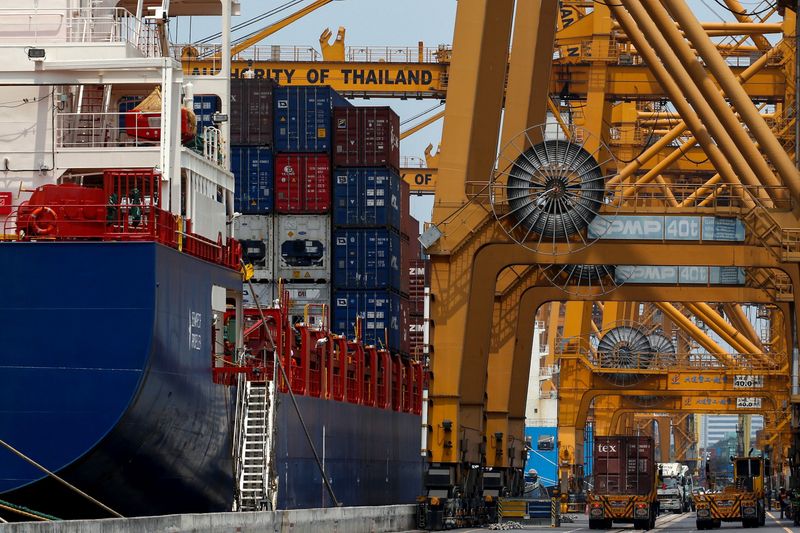Thai economy to continue growing despite weaker-than-expected Q2 – central bank
2022.08.16 06:34

FILE PHOTO: A view of the Port of Bangkok, Thailand, March 25, 2016. Picture taken March 25, 2016. REUTERS/Athit Perawongmetha/File Photo
BANGKOK (Reuters) – Despite a weaker-than-expected second quarter, Thailand’s economy is expected to continue growing in the second half of the year as tourism picks up, the central bank said on Tuesday, suggesting gradual policy tightening may continue.
Second-quarter growth missed the central bank’s forecast due to lower-than-expected private investment and inventories, but other elements overall were better than expected, including exports and tourism, Assistant Governor Piti Disyatat told TNN News.
“The picture reinforces that the economic recovery has begun,” he said.
In April-June, the economy grew 2.5% from a year earlier and 0.7% from the previous three months.
In June, the Bank of Thailand (BOT) forecast economic growth of 3.3% this year, with foreign tourists seen at 6 million. But it recently said growth could beat its forecast as there was some upside to its foreign tourist projection.
The government’s planning agency forecast 9.5 million foreign tourist arrivals this year. There were nearly 40 million foreign visitors to Thailand in 2019 before the pandemic hit.
A global economic slowdown should have a limited impact on the Thai economy as the recovery of tourism has not historically been very sensitive to the global economy, Piti said.
Inflation is likely to be higher in August before gradually falling but should still be close to forecasts, he said.
The BOT has forecast headline inflation of 6.2% this year and 2.5% next year, compared with its target range of 1% to 3%.
Headline inflation was 7.61% in July, around a 14-year high.
Last week, the BOT raised its key interest rate for the first time in nearly four years, by 25 basis points to 0.75%, to curb inflation and signalled further gradual hikes.
“Gradual policy tightening will allow for a gradual rate transmission, helping the economic recovery and reducing the impact on vulnerable groups,” Piti said.








